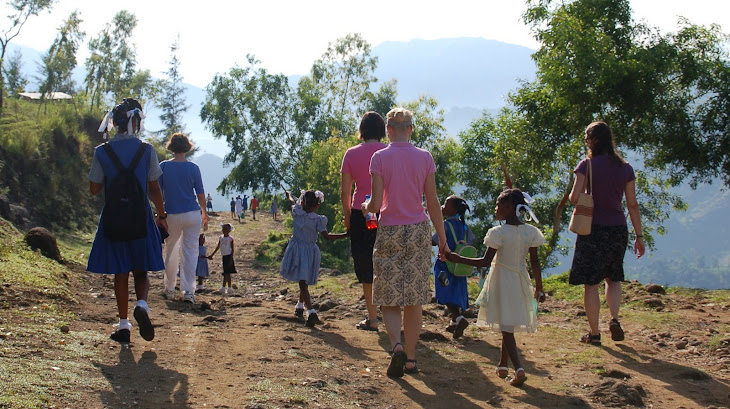"As it is, there are many members, yet one body. The eye cannot say to the hand, ‘I have no need of you’, nor again the head to the feet, ‘I have no need of you.’ On the contrary, the members of the body that seem to be weaker are indispensable, and those members of the body that we think less honorable we clothe with greater honor, and our less respectable members are treated with greater respect; whereas our more respectable members do not need this. But God has so arranged the body, giving the greater honor to the inferior member, that there may be no dissension within the body, but the members may have the same care for one another. If one member suffers, all suffer together with it; if one member is honored, all rejoice together with it." -- 1 Corinthians 12:20-26
I cast my first real vote today. We were deciding whether to amend our constitution to create a set-aside bishop who would not be assigned to a specific geographical area so as to have the freedom to concentrate on leading the Council of Bishops. The legislation failed to receive a two-thirds majority vote.
The most difficult part of being on the floor is keeping track of what’s called the consent calendar, where we bunch legislation together and vote on it en masse. Once I figured out where we were, I tried to help the Congolese delegation at our table track the legislation and use the electronic voting devices. The instructions for the devices kept changing. Plus, they were listening to the instructions in Swahili, tracking with a French copy of the Advance Daily Christian Advocate, and looking at an English version of the consent calendar. Oy vey!
Last week I grew weary of being part of a global church with the cultural differences, the language issues, and the different social realities, especially when it comes to the treatment of women and people who are homosexual. I still struggle to see how we can go forward together, especially on the issue of homosexuality. In some American churches, our stance of “homosexuality is incompatible with Christian teaching” prevents people from being part of our churches because they find us hypocritical and judgmental. Our Asian and African delegates have begged us not to pass open and affirming legislation because homosexuality is illegal or condemned in some of their cultures. One man even said his church told him not to come back if we voted to ordain people who are gay or lesbian.
Tonight we broke into round table conversations about the global nature of the church, and I reflected on the people I’ve met so far. I remembered the Ivory Coast pastor who’s only been to one year of seminary because she can’t afford the other two. I recalled the superintendent from a “poor corner” of the southern Congo whose pastors earn $10 to $20 a month. I can’t imagine these realities either, and yet we’re called to be part of one Body of Christ. We can’t start cutting off eyes and feet just because we think we don’t need each other.
There is no easy way to be a global body, just the reassurance that God has arranged us, one part connected to the other -- toe bone connected to the foot bone, foot bone connected to the leg bone, leg bone connected to the knee bone -- so that all of us dry bones may one day get up and walk around together.







